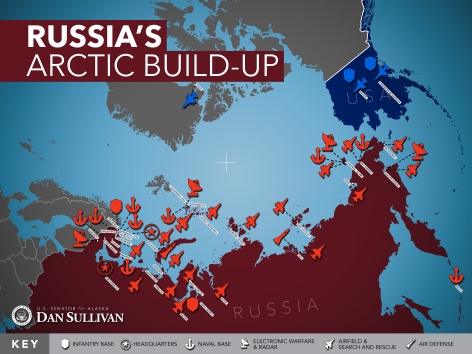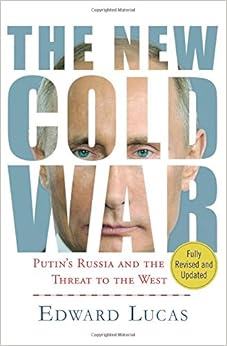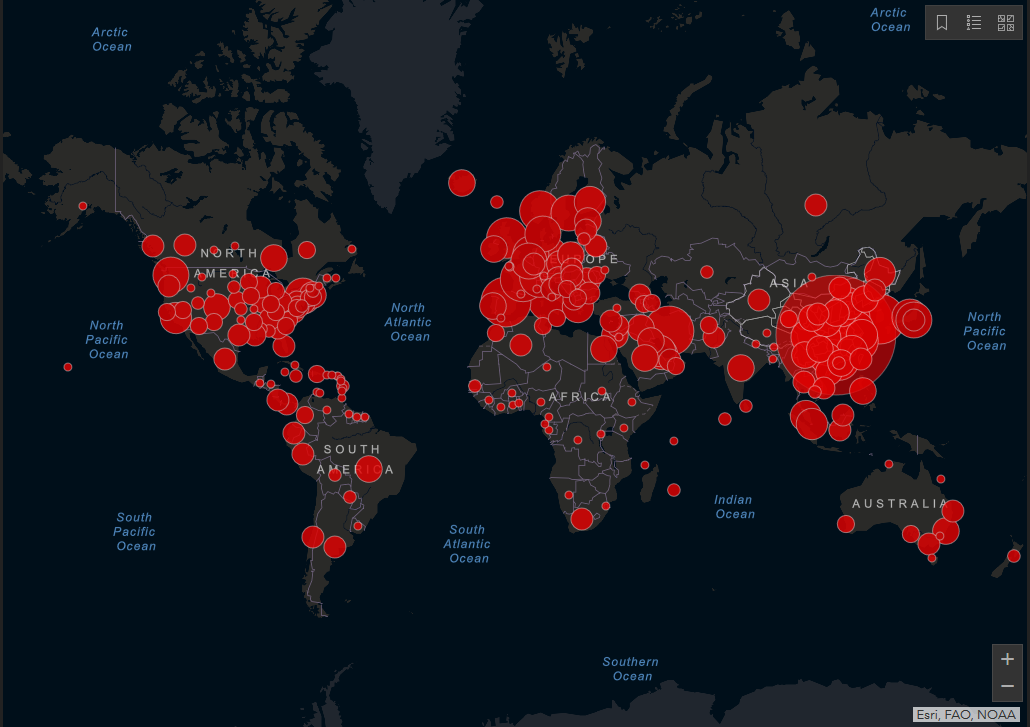> Pro-Kremlin Youth Group Nashi Marches on US Embassy in Moscow, Denouncing Washington’s Foreign Policy on Kosovo and Iraq
Pro-Kremlin Youth Group Nashi Marches on US Embassy in Moscow, Denouncing Washington’s Foreign Policy on Kosovo and Iraq
Not surprisingly Vladimir Putin’s anointed successor, Gazprom CEO, and Komsomol graduate Dmitry Medvedev has won Russia’s presidential election, which means Putin will be appointed prime minister again. Thus, while the KGB dictator will animate his puppet from the background, Putin himself will be carrying out the dictates of the restored/continuing Communist Party of the Soviet Union. Russia’s state-run economy is thriving on revenue generated by oil, natural gas, and arms exports, the “ex”-communist/”ex”-KGB oligarchy is lining its pockets, and the West continues to perceive the Russian “Right,” as personified by Putin’s Chekist administration and United Russia’s domination of the State Duma, as the real powerbrokers in Moscow.
State-run Novosti, below, contends that with a 70% voter turnout and 99% of the ballots counted Medvedev has obtained 70% of the vote, precluding any need for a second round of balloting. By contrast, Communist Party of the Russian Federation Chairman Gennady Zyuganov allegedly won only 18% of the vote, KGB politician Vladimir Zhirinovsky won 9%, and Democratic Party candidate Andrei Bogdanov, the country’s highest-ranking Freemason, won 1%. The CPRF website, however, insists that Medvedev secured only 64% of the vote, while Zyuganov raked in 22%.
In either case, open communist Zyuganov is perceived in the West as a sorry, washed up loser who has petulantly rejected the validity of both the 2003-2004 and 2007-2008 election seasons. In an interview with state-run Interfax Zyuganov is dismissing as premature allegations that he will legally challenge the results of Sunday’s election but has admitted that the CPRF will pursue law suits at the local level with respect to alleged voting violations by the “party of authority,” meaning United Russia, which endorsed Medvedev’s bid.
This question is within the competence of the party’s leadership. The KPRF Central Committee’s Presidium will meet on Thursday evening to sum up and assess the election results. Whether or not to take the matter to court may also be discussed. But the ultimate decision will be made at the KPRF Central Committee’s plenary meeting to be held on March 22. The party intends to sue over the election violations registered by KPRF members. Our activists registered about 200 violations of a criminal nature. We intend to sue in local courts.
Yesterday evening, on the Russia TV channel, Zyuganov also refused to commit himself to supporting Putin as the next prime minister until appropriate consultations have occurred with Medvedev: “The Communist Party (KPRF) has yet to decide on the support of the candidature of Vladimir Putin for office of Russian prime minister. As to the candidate for prime minister and the line, including the composition of the government, we will discuss this with new president and will then make a decision.” In so doing, Comrade Gennady inadvertantly revealed the background role that the CPSU exerts in “post”-communist Russia’s political system.
Former prime minister Mikhail Kasyanov was denied registration by the Central Election Commission (CEC) and subsequently denounced the election results: “I couldn’t care less what figures have been officially published, 60-70 or 120%. Today is the day of the conclusion of an operation for the illegitimate transfer of power.” CEC member Yelena Dubrovina admitted to the Ekho Moskvy radio station today that: “We received complaints that people were pressurized by heads of organizations and institutions to go to polling stations and then to report to them.”
Meanwhile, international election monitors from the Parliamentary Assembly of the Council of Europe admits that Medevdev’s victory reflected the “will of voters,” but questions the fairness of the results in view of Medvedev’s domination of the electronic media, his refusal to debate Zyuganov on television, and the refusal by the CEC to register a number of candidates, as noted above, like Kasyanov and outspoken Putin opponent Garry Kasparov. CPSU Chairman and August 1991 coup ringleader Oleg (“Man in the Shadows”) Shenin was also “denied” registration.
The Organization for Security and Cooperation in Europe refused to accept the Kremlin’s invitation to monitor the election, just as it refused to attend the Duma election in December. By contrast, the head of the election monitoring mission of the Commonwealth of Independent States, the international political structure by which Moscow exerts control over her satellites, heralded the election as “free, open and transparent.” Nauryz Aidarov, head of the CIS mission, crowed: “The CIS observer mission states that the election is a major factor in the further democratization of public life in the Russian Federation, and recognizes it as free, open and transparent.” One European observer, who has clearly bought into the Soviet deception and saw only what the Kremlin fixers wanted him to see, gushed: “The vote took place in a wonderful environment and met Western norms.” Yeah, right.
Finally, in another disgusting display of pro-Soviet grovelling, faux rightist President Nicholas Sarkozy has congratulated Medvedev on his “landslide” victory, inviting Russia’s president-elect to visit France as soon as convenient to advance the Paris-Moscow Axis.
PACE says Medvedev won Russian polls, but doubts fairness-2
16:0603/ 03/ 2008
MOSCOW, March 3 (RIA Novosti) – European observers said on Monday that Russia’s presidential elections reflected the will of voters, but questioned the fairness of the polls.
Kremlin-backed Dmitry Medvedev, 42, won Russia’s presidential election by a landslide, preliminary results from the Central Election Commission showed on Monday. With 99% of the ballots counted Medvedev received 70.22% of the votes in Sunday’s elections with a record turnout of 69.6% of the country’s 109 million eligible voters.
Andreas Gross, head of the group from the Parliamentary Assembly of the Council of Europe (PACE), said Sunday’s vote was a “reflection of the will of the electorate whose democratic potential unfortunately has not been tapped.”
He said unfair access to media put into question the overall fairness of the vote, adding the election “repeats most of the flaws seen in the parliamentary elections last December.”
Gross said previously voters had a limited choice and pointed to the “insurmountable” difficulties one candidate faced in registering to run in Sunday’s contest.”
“An election where there is not a level playing field for all contestants can hardly be considered as fair,” the PACE team stated before the campaign.
The head of the Central Election Commission said all comments by international observers would be taken into account.
However, he said the commission would hardly be able “to follow all of the contradictory recommendations” made by observers.
European NGO observers said they had no problems with the election and that the vote conformed to Western standards.
“The vote took place in a wonderful environment and met Western norms,” said Bernard Perego [name as transliterated].
He said he had visited four polling stations in Russia and had witnessed no violations.
Another European NGO observer praised the election for being well-organized.
“What we saw was well organized; the turnout was high, and people were voting with pleasure,” said Paul Marie Couteaux.
The CIS observer mission said the election was free and democratic.
“The CIS observer mission states that the election is a major factor in the further democratization of public life in the Russian Federation, and recognizes it as free, open and transparent,” said Nauryz Aidarov, head of the CIS mission.
Medvedev’s nearest rival, Communist Party leader Gennady Zyuganov, has 17.77% of the vote, nationalist Vladimir Zhirinovsky 9.37%, and the leader of the pro-Western Democratic Party, Andrei Bogdanov, – 1.29%.
The overwhelming lead is enough to give Medvedev victory in the first round of voting.
Election officials said that the polls had taken place without serious violations. However, critics pointed to pressure on voters to cast their ballots, especially employees at state-run organizations.
The refusal by the Russian election authorities to register a number of candidates from Russia’s opposition due to ‘irregularities’ in their applications was also cited, as was the lack of media coverage for candidates given permission to stand.
Election officials said that the polls had taken place without serious violations. However, critics pointed to pressure on voters to cast their ballots, especially employees at state-run organizations.
The refusal by the Russian election authorities to register a number of candidates from Russia’s opposition due to ‘irregularities’ in their applications was also cited, as was the lack of media coverage for candidates given permission to stand.
As results came in, Medvedev’s main contenders, Gennady Zyuganov and Vladimir Zhirinovsky, hinted that they could contest the election results in the courts.
Many Western observers, including the OSCE’s main election arm, chose to boycott the election claiming Russia had imposed restrictions on monitors. However, Moscow has strongly rejected the allegations.
Source: Novosti
In the USA the Democratic Party’s front-running candidates Hillary Clinton and Barack Obama expressed reservations about the fairness of Medvedev’s victory. Clinton stated yesterday: “Today’s presidential election in Russia – where the installation of Dmitry Medvedev as Vladimir Putin’s self-designated successor was never in doubt – marks a milestone in that country’s retreat from democracy.” During his February 26 debate with Comrade Hillary Obama commented: “Medvedev’s candidacy is a clever but transparent way for Putin to hold on to power.” These are excellent points, but disengenuous in view of the fact that both Clinton and Obama are committed leftists and members of the pro-communist Council on Foreign Relations, which is one of the prime movers behind the secretive Kissinger-Primakov Strategic Working Group on US-Russian relations. It should be pointed out that front-running Republican contender John McCain, whose commitment to conservative American values is dubious at best, is a CFR cadre too.
The Kremlin’s rent-a-mob is not pleased with the election results, even as Kremlin authorities impose numerous restrictions on Kasparov’s Other Russia coalition, which seeks to protest the election results. Several hundred “protesters” have materialized in the streets of Moscow and St. Petersburg. State-run Interfax reports: “Several hundred people are taking part in an opposition rally in St. Petersburg, an Interfax correspondent reports. In Moscow, police have prevented groups of National Bolsheviks totaling about 100 people from staging riots, Moscow Mayor’s first deputy press secretary Mikhail Solomentsev told reporters.”
In a counter-demonstration, the Kremlin-backed youth movement Nashi marched on the US embassy in Moscow, shouting slogans like “Russia Forward!” and “We Will Stand Beside Our Country” and denouncing Washington’s stance on Kosovo and Iraq. Last week other pro-Kremlin youth groups like Young Russia and Eurasian Youth Union travelled to Belgrade to protest Kosovar independence. Not so coincidentally, the street activists arrived at the same time as a high-level Russian delegation led by First Deputy Prime Minister Medvedev, who apparently offered to place Serbia under Russia’s nuclear umbrella.
 Medvedev to Advance Moscow-Beijing Axis’ “One Clenched Fist” Per Golitsyn’s Warnings
Medvedev to Advance Moscow-Beijing Axis’ “One Clenched Fist” Per Golitsyn’s Warnings
Pictured here: First Deputy Prime Minister Medvedev visits Beijing, where he meets Chinese Premier Wen Jiabao, August 28, 2006.
In the final analysis, the Soviet strategists’ drive for world domination is not altered in anyway by Medvedev’s electoral “victory.” Rather, their plans are strengthened in at least two areas: the Russian economy will continue to expand with the help of Western Nepmen, enabling the remilitarization of the neo-Soviet military, and the Moscow-Beijing Axis, as embodied by the Shanghai Cooperation Organiztion (SCO), will consolidate its gains against the West in preparation for defeating the bourgeois nations. With respect to the former, state-run Russia Today glowingly reports: “With Dmitry Medvedev’s win in the presidential election investors have got what they crave – stability and a clear direction. Analysts are now predicting an investment surge in Russia.”
With respect to the latter, Zhang Deguang, a member of the SCO’s election monitoring team who is also a former executive secretary of the SCO and former Chinese ambassador to Russia, praised the results of the Russian presidential election: “We are positive that the election was democratic, legitimate, transparent, fair and successful.” It is clear, then, that Medvedev will continue Putin’s policy of strengthening the “one clenched fist,” the term that former KGB Major Anatoliy Golitsyn used in his 1984 book New Lies for Old to describe the Sino-Soviet strategic partnership. In his press conference at the Chinese embassy in Moscow today, Deguang reveals that Comrade Dmitry has already played an extensive role in advancing the objectives of the two communist superpowers worldwide:
 I am deeply convinced that Russian-Chinese relations of strategic partnership and interaction are sure to maintain their high dynamics. It is noteworthy that Dmitry Medvedev used to head the Russian part of the Organizing Committee for the national years of Russia and China. Medvedev repeatedly visited China, he perfectly knows China, and a profound friendship has formed between Medvedev, the Chinese leadership and the Chinese people. This year, with the advent of Dmitry Medvedev, a number of meetings between the heads of China and Russia both in multilateral and bilateral formats, are planned.
I am deeply convinced that Russian-Chinese relations of strategic partnership and interaction are sure to maintain their high dynamics. It is noteworthy that Dmitry Medvedev used to head the Russian part of the Organizing Committee for the national years of Russia and China. Medvedev repeatedly visited China, he perfectly knows China, and a profound friendship has formed between Medvedev, the Chinese leadership and the Chinese people. This year, with the advent of Dmitry Medvedev, a number of meetings between the heads of China and Russia both in multilateral and bilateral formats, are planned.
In a related story, this past week the head of the United Nations’ International Atomic Energy Agency, Mohamed El Baradei, adopted the Kremlin/Council on Foreign Relations line and urged the USA and Russia to eliminate their nuclear arsenals: “Their continued reliance on nuclear weapons as the cornerstone of their security sends the wrong message. The risk of accident or miscalculation would be dramatically lowered if weapons were taken off the Cold War hair-trigger alert.” For more than 60 years the UN presence in New York City has been the Communist Bloc’s chief base for subversion in the USA. This fact was once again underscored by the recent publication of the memoirs of Russian Foreign Intelligence Service operative Sergei Tretyakov, Moscow’s assumption of the rotating chairmanship of the UN’s Security Council for the month of March, as well as the infiltration by Soviet agents of the IAEA at the highest levels.
Taking into account all relevant factors, we believe that the Soviet strategists will probably remove the Putinist regime’s “non”-communist mask to fully reveal its Stalinist heart when the communist-infiltrated US Democratic Party takes the White House this November. From that point onward, the final disarmament of America will begin in the face of a resurgent Russian military, the budget for which will grow by 20% in 2008, allied with China’s modernized People’s Liberation Army, which the Pentagon admitted in 2007 has evolved into a “nimble quick-reaction force.”














































































